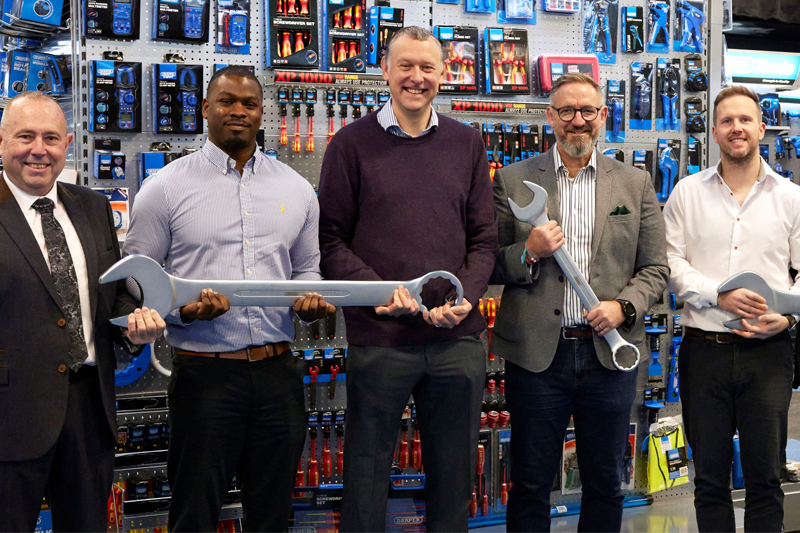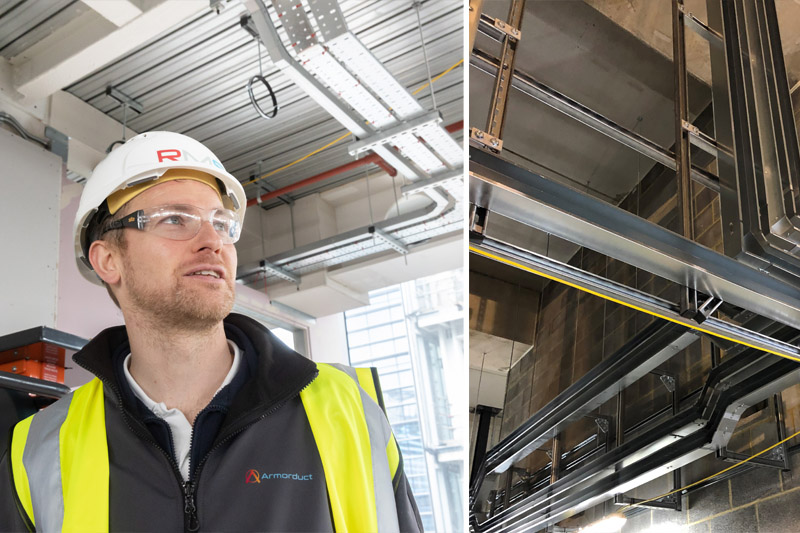Mick Fitzgerald, Director, Options Skills, explains the importance of ‘cultural fit’ when recruiting new team members and gives his tips for getting it right.
Culture is key in every business. It sets the precedent for all you say and do. And, with 90% of UK employers saying cultural fit is key when recruiting, it’s clear that it should be a crucial part of your growth strategy too. Your new recruits need to fit in with your existing culture to help you continue to grow.
Have you ever recruited someone who had the right experience and training, but then felt that something wasn’t quite right after they’d started? Although 87% of employers offer inductions to new team members on business culture, occasionally, the team member simply isn’t aligned with it.
Culture is even more important for small electrical teams. For teams who work closely together on a daily basis, getting on with one another is key to doing the job properly. A good relationship is crucial for open communication and successful team work.
Your culture also has a direct impact on your service and the way you work with customers. That needs to be consistent across all jobs, no matter which team member is carrying out the work.
Hiring for cultural fit
Hiring for culture fit isn’t about hiring identical members of staff – it’s about recruiting team members who will integrate well into the business and adopt its core values. It’s also important to hire people who can bring new insights and ideas, as well as a positive influence that can complement the team and culture you’ve already built.
For example, if your current team is young, and you’re interviewing an older candidate who has retrained, you may be concerned that they won’t fit into your existing culture. However, this candidate may bring lots of knowledge and general life and work experience, which could have a significant positive impact on your business. Just because the candidate doesn’t ‘look’ like existing team members, it doesn’t mean they won’t fit in culturally.
The key characteristics to look out for
Every electrical business is different and has a unique culture, so hiring strategies often vary. However, here are some key characteristics to look out for to see if someone is the right cultural fit for your growing business:
- Investment in growth – is this candidate taking clear steps to advance their career? Perhaps they have recently completed additional, relevant electrical training, or have retrained through traineeship and paid for their own training. Ask the candidate how they see their career progressing and what they are doing to reach their goals. This will help you to determine how ambitious and committed to personal growth they are.
- Eager to learn – are they eager to develop existing talents and grow their skillset? You could ask the candidate about the kind of training and support they would value if they were to join your team. If they appear to be interested in developing their skillset, it’s likely they will make a committed team member. And, in the everchanging electrical industry, willingness to learn is crucial.
- Interest in the trade – is this candidate genuinely interested and passionate about the electrotechnical industry or do they see the job as simply a way to earn money? You may want to ask them why they are interested in the industry, and why they choose to take this particular career path.
- Understanding of your current culture – throughout the recruitment process, share your current culture with candidates and allow them to show an understanding of this. You could ask them to share stories of times they have embodied part of your culture.
Experience vs willingness – the impact of experience
Hiring for cultural fit means looking beyond experience alone. Limited experience doesn’t necessarily mean a lack of willingness to learn or inability to fit in with your business’ culture.
For example, imagine you’re choosing between Candidate A and Candidate B. Your culture is about teamwork and collaborative working. Candidate A has lots of previous experience but enjoys working alone. Candidate B has just finished their initial centre led training and is working towards their next qualification, but is incredibly eager to learn and prefers working in a team. In this situation, Candidate B is likely to be the most suitable option for your business, as they will easily integrate into the culture of collaboration, and they are showing their commitment to growth by investing in their own training.
Ultimately, previous experience is an important part of the hiring process, but willingness to learn and the right cultural fit should not be overlooked, as these will often prove to be more valuable in the long-term.
For advice on recruiting junior team members with the right cultural fit, visit https://www.options-skills.co.uk/





